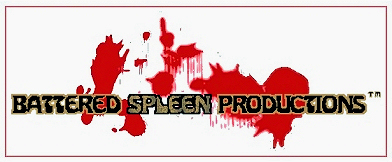Once Old, Now New Again
Remakes. Yes, the most contested movies in all of moviedom. A lot of people online just love to hate them. They whine, moan, complain, harass people who are excited for them, and frankly can't resist speaking up every single time one or even the thought of one is mentioned. Except for the fanatic insistences and blind hatred I say good on them for sticking to their guns. As we looked at last time out people complain if a movie is similar to a previous one and isn't a remake so there's really no winning. Except... there is one remake that almost no one complains about. That would be John Carpenter's The Thing (1982). Whether you like it--and its distasteful subject matter--or not Wes Craven's acclaimed first outing The Last House on the Left (1972) is pretty much a remake of The Virgin Spring (1960)--apparently the Virgin Spring's scriptwriter based it off of a ballad of all things. Craven himself cites the Virgin Spring, though some debate if that truly makes a remake.
Within remakes there is another subdivision called the reboot. All reboots are remakes, but not all remakes are reboots. To start, a reboot denotes a franchise, meaning a movie with sequels. While there are close remakes and loose remakes--The Thing and Last House on the Left are varying degrees of loose--reboots tend to change something within the story. Again the significance of the change varies. A prime example of a reboot is the remake of Friday the 13th (2009). Its first significant change is that it revolves around Jason, whereas the original first Friday the 13th movie did not. Other than Jason there are next to no other characters from the original film. There aren't even camp councillors. In contrast the remake of Nightmare on Elm Street (2010) while different in several aspects does not feel like a reboot despite the different additional characters. It added elements to the original, but not in a way that changed anything.
The adding of elements and expanding upon the ideas in the original is what makes for a great remake. A perfect example is the remake of The Hills Have Eyes (2006). It takes most of the original and then adds to it immensely, and in a way that feels natural. It also modernises the story without actually changing the timeframe (at least as far as I noticed). What it did was make more sense in the story's end, and as a good remake does it removed traits from the film that didn't age well and would make it dated. On the other hand it seemed like some of the addition was very close to a different unrelated horror movie, which itself borrowed from something else altogether. Another great remake that adds to the original is the remake of The Amityville Horror (2005). What it added to the film was in some parts new and in others elements present in the original novel that did not make it into the first film. I think this Amityville is the best remake of the new millennium yet.
Mood: stoic.
Music: Big Man With A Gun by Nine Inch Nails and (Ghost) Riders In The Sky by Me First And The Gimme Gimmes.
 Or get MP3s. | Buy these at Amazon.com Click Images to Buy CDs |  Or get MP3s. |
Labels: A Nightmare on Elm Street, Amityville Horror, elements, Friday the 13th, John Carpenter, Last House on the Left, movies, reboot, remake, The Hills Have Eyes, The Thing, Wes Craven





0 Comments:
Post a Comment
<< Home